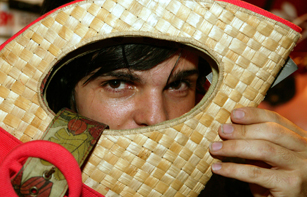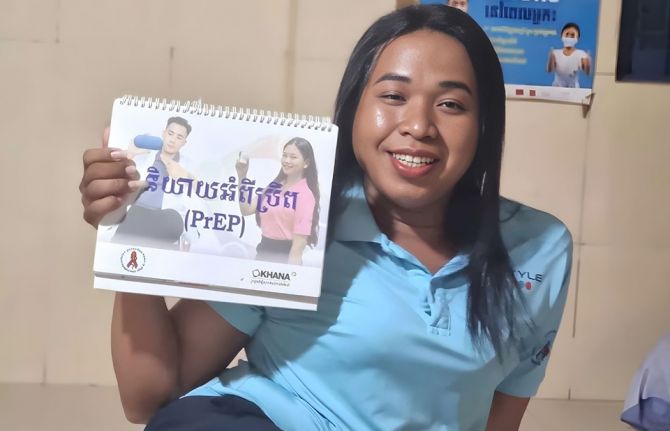
Feature Story
Inter-American Commission on Human Rights creates a specialized unit to address human rights of lesbians, gays, bisexual, trans and intersex people
14 March 2012
14 March 2012 14 March 2012
The HIV epidemic in Latin America is mainly concentrated among men who have sex with men (MSM) and transgender persons.
Credit: UNAIDS
The Inter-American Commission on Human Rights (IACHR) has created a specialized technical unit to strengthen its capacity to protect the rights of lesbian, gay, bisexual, trans, and intersex (LGBTI) people in the Americas.
The IACHR is an autonomous body of the Organization of American States (OAS), with a mandate to promote respect for human rights in the region and act as a consultative body to the OAS in this matter.
The specialized unit, created in January 2012, is part of IACHR’s comprehensive approach to promoting the interdependence and indivisibility of all human rights. It takes into account the specific needs of individuals and groups which have been historically the focus of discrimination. Among its functions, the unit analyzes and investigates individual petitions in which violations of human rights of LGBTI are alleged to have been committed by Member States of the OAS.
The HIV epidemic in Latin America is mainly concentrated among men who have sex with men (MSM) and transgender persons. The latter group has reported HIV prevalence rates of 27.6% in Argentina and of 29.6% in Peru in contrast to an estimated HIV prevalence among the general population of 0.5% and 0.4% in both countries respectively.
Trans women and men in the Americas face social exclusion that keeps them away from health care, employment and justice, increasing their vulnerability to HIV and human rights violations
Marcela Romero from REDLACTRANS
In addition, the region has experienced an alarming increase in violence and intimidation towards transgender people and MSM. The Inter-American Commission has received information about murders, rapes, and threats against LGBTI people. The Commission agrees that LGBTI persons face serious discrimination both at social and legal level.
UNAIDS has been working closely with the IACHR in recent years. “UNAIDS and the Inter-American Commission established a strategic alliance, based on a set of actions aimed at achieving zero discrimination and violence, with a human rights approach,” commented Víctor Madrigal-Borloz, Principal Specialist at the Inter-American Commission on Human Rights.
The UNAIDS Regional Director for Latin America Dr César Núñez commended the creation of such a specialized unit. He called upon all countries in the region to fully respect the human rights of men who have sex with men, lesbians and transgender people through “enforcing laws to protect them from violence, promoting campaigns that address homophobia and transphobia and ensuring that crucial health needs are met.”
Expert meeting on violence and impunity against LGBTI people
At the end of February 2012 and under the auspices of UNAIDS, the Commission brought together more than 20 independent experts from academia, human rights institutions, civil society, representatives of security forces, the UN and the IACHR to discuss issues around “violence and impunity against lesbians, gays, trans, bisexual and intersex people”.
The expert meeting was the second of six meetings that will contribute to the first ever Hemispheric Report on Sexual Orientation and Gender Identity. Marcela Romero from REDLACTRANS participated in the meeting and highlighted that “trans people, trans women and men in the Americas face social exclusion that keeps them away from health care, employment and justice, increasing their vulnerability to HIV and human rights violations.”
In 2013, the Commission will evaluate the unit's work and will decide whether to create an Office of the Rapporteur on the Rights of LGBTI Persons.



